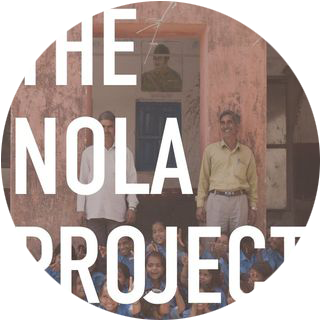TOGO - HUMANITy & INCLUSION
Kara-Dapaong Communities
Inclusive education is about creating learning environments that respond positively to different individual’s needs and embrace the diverse nature of humanity. Children with disabilities are a natural part of this diversity and exist in every community, but are often excluded from participating in education and particularly mainstream learning environments. [Policy Paper, Inclusive Education, Handicap International, July 2012]
Specifically the project objective is to increase participation of girls with disabilities in existing public schools. Once identified in the community and evaluated in terms of rehabilitation needs, handicapped girls are accommodated in schools along with all the other children.
To guarantee quality inclusive education, training sessions and awareness workshops are delivered to class teachers and pedagogical supervisors. A system of itinerant teachers trained on visual, hearing, motor or intellectual disabilities is developed in order to retain handicapped children at school ensuring positive experience and success. Community agents are also involved in the follow up at home for children with severe disability.
In Togo 58.7% of the population live below the national poverty line [UNDP 2014 Human Development Report]. The number of people with disabilities in the country is estimated at nearly 620,000, of which more than 61,000 people need rehabilitation. In Western Africa, Lome, the capital, is the only city to house a training school for francophone orthopedic technicians and speech therapists, ENAM (École nationale des auxiliaires médicaux).
Source: Community Profile Humanity & Inclusion, 2014.
Kabiratou Adam is a 5-year-old girl who lives in the Kara region of northern Togo. Since September 2015, she goes to Kpelouwai Public Primary School with her twin brother Kabirou.
Her mother Mazalo takes care of the house and her 9-month-old baby, Radiatou. In addition to her maternal and household chores, Mazalo sells jewellery at the market. Her own education stopped after high school.
Every day, Kabiratou goes to school with her friend Fozia who lives in the same hamlet. Kabiratou has motor and intellectual disabilities so she is in a wheelchair, accompanied by her father.
Since being identified by APHAK (Association des personnes handicapées de la Kozah) - the association of the disabled of Kozah – Kabiratou has received family support, equipment and rehabilitation at the Regional Center for Orthopaedic Equipment in Kara. Once a week, an APHAK agent goes to Kabiratou's house to help her do exercises and, as her father calls it, gymnastics.
The life of their whole family has been transformed. Before, Kabiratou was alone at home and crying when she saw her brother go to school. Her muscles atrophied because she was lying down all day. Despite the involvement of Kara University Hospital, there was no hope for improvement.
Today, Kabiratou is looking forward to going to school to learn and have fun with her friends like Fozia. She shyly says a few sentences in French. Every day, Kabiratou gains a little more autonomy. In just 3 months, her progress is very real.
Her father’s pride can be seen in his eyes as Kabiratou takes her daily steps using two parallel wooden bars in the family yard. All her joy shows in her smile when Kabiratou says to him, "Dad, look at me! ". Even grandmother Irima praises her granddaughter. "She is healthy now.” Her improvement is tangible, change is sustainable and the future is promising – one step at a time, one word at a time.
© Dominique & Maria Cabrelli
« Aller à la rencontre des jeunes filles que les organismes accompagnent dans leur développement était la manière la plus lumineuse, la plus humaine et la plus inspirante pour moi de mieux comprendre leur quotidien, d’envisager l’avenir et de partager leur rêve. Au fil de ces rencontres, il m’a semblé toucher à l’essence même de la personne, sa dignité. Leur dignité mais également la nôtre. Une dignité qui s’exprime à travers la capacité des communautés à prendre des décisions qui auront un impact positif. Mais aussi notre dignité à défendre le droit à l’éducation sans lequel aucun des droits humains fondamentaux ne peut être exercé. »
Manuela Clément-Frencia









